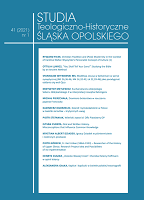Christian Tradition and (Post) Modernity in the Context of Cardinal Stefan Wyszyński’s Personalist Concept of Culture (1)
Christian Tradition and (Post) Modernity in the Context of Cardinal Stefan Wyszyński’s Personalist Concept of Culture (1)
Author(s): Ryszard FicekSubject(s): Christian Theology and Religion, Recent History (1900 till today), Structuralism and Post-Structuralism, Sociology of Culture, History of Religion
Published by: Uniwersytet Opolski
Keywords: Second Vatican Council; Cardinal Stefan Wyszyński; culture; modernism; deconstruction;
Summary/Abstract: In the context of Cardinal Wyszyński’s personalistic concept, a man understood as a spiritual, as well as corporal being, created by God in His image and likeness, endowed with human dignity from the moment of conception, the subject of rights and duties appears as the focus of the Christian perception of culture. The analysis of contemporary cultural reality, then, carried out in the above article in the light of the Christian tradition allows us to express the discussed issues in terms of a vocation addressed to every human being. Its position to the realities of earthly life emphasizes that in the creative activity of culture, one should see the most appropriate way of realizing the fullness of the human personality not only in the temporal dimension but also in the supernatural one. Moreover, emphasizing such elements as the human person, family, Nation, state, the international community, culture, economy, and politics understood in an integral way, as well as the Church proclaiming the universal message of salvation, the Primate’s vision of culture exposes a praxeological character, rooted in particular human existence. It allows not only the direct inclusion of the human person in the current of civilization and cultural changes but also consents the human being to discover the right place in the dynamically changing contexts of the contemporary world.
Journal: Studia Teologiczno-Historyczne Śląska Opolskiego
- Issue Year: 41/2021
- Issue No: 1
- Page Range: 15-33
- Page Count: 19
- Language: English

